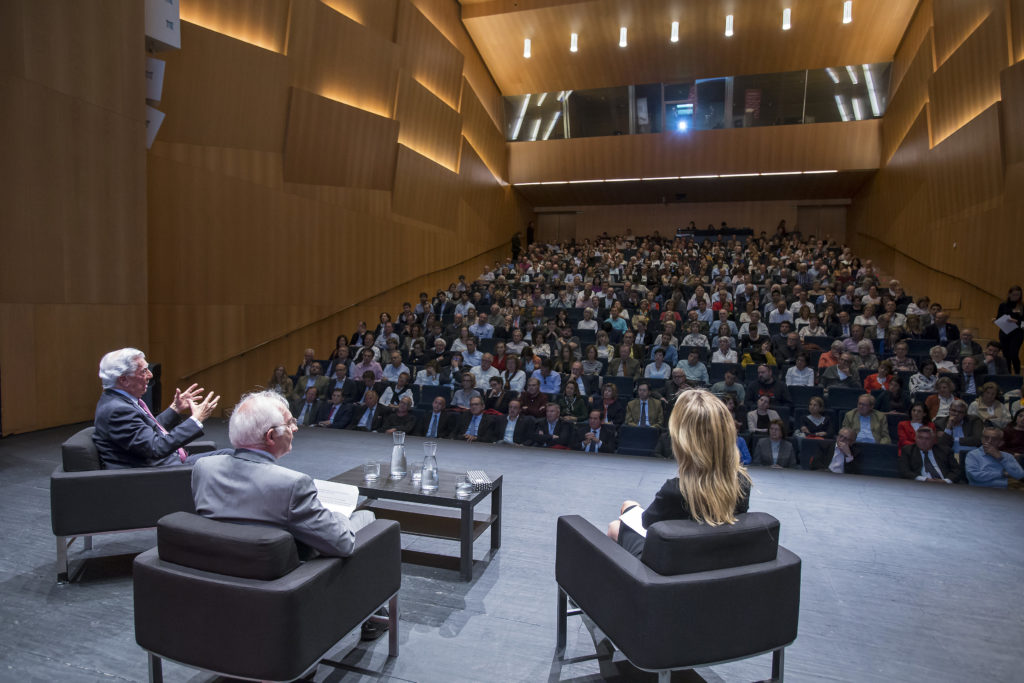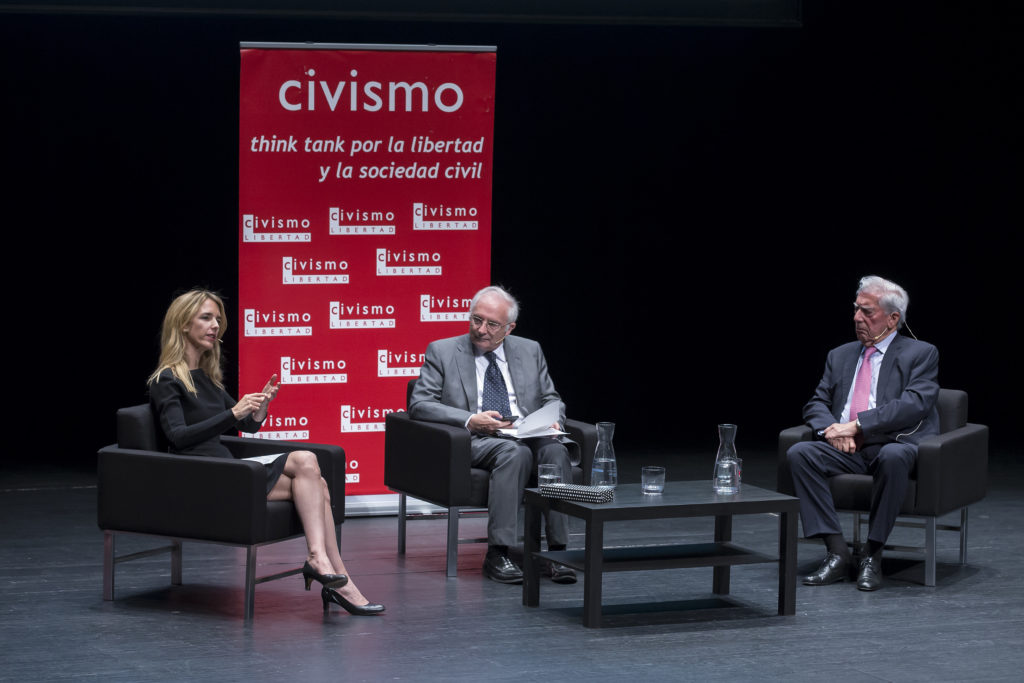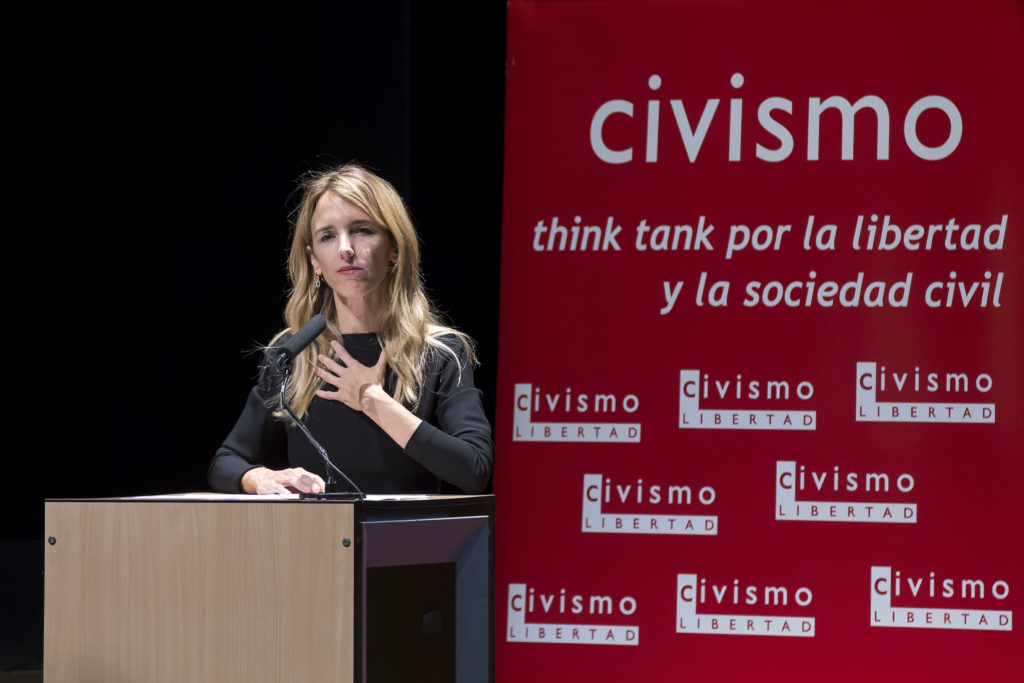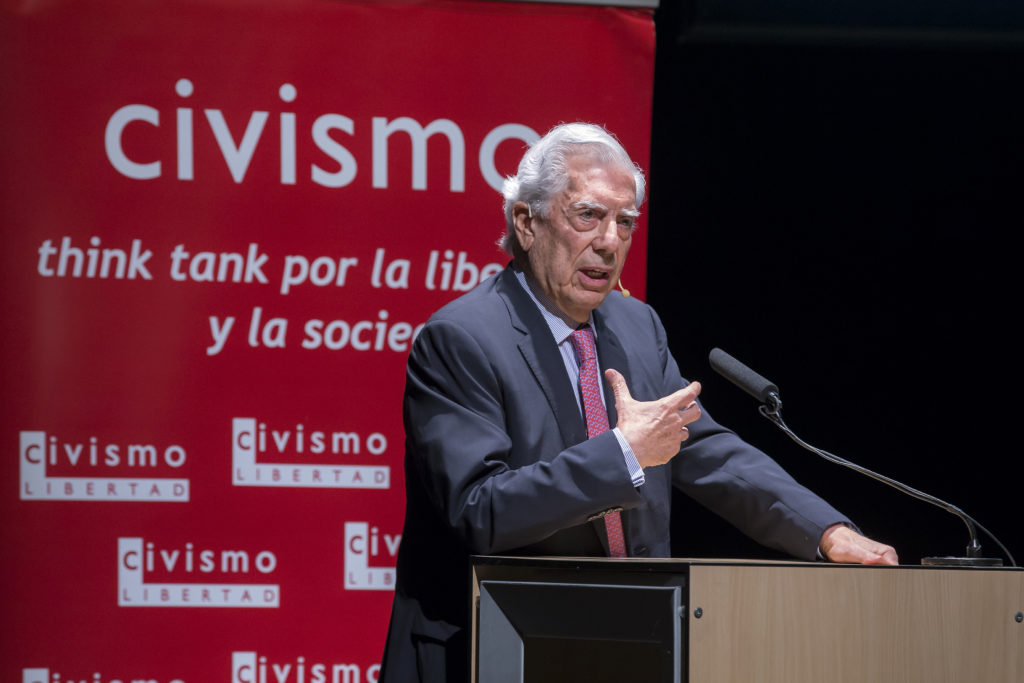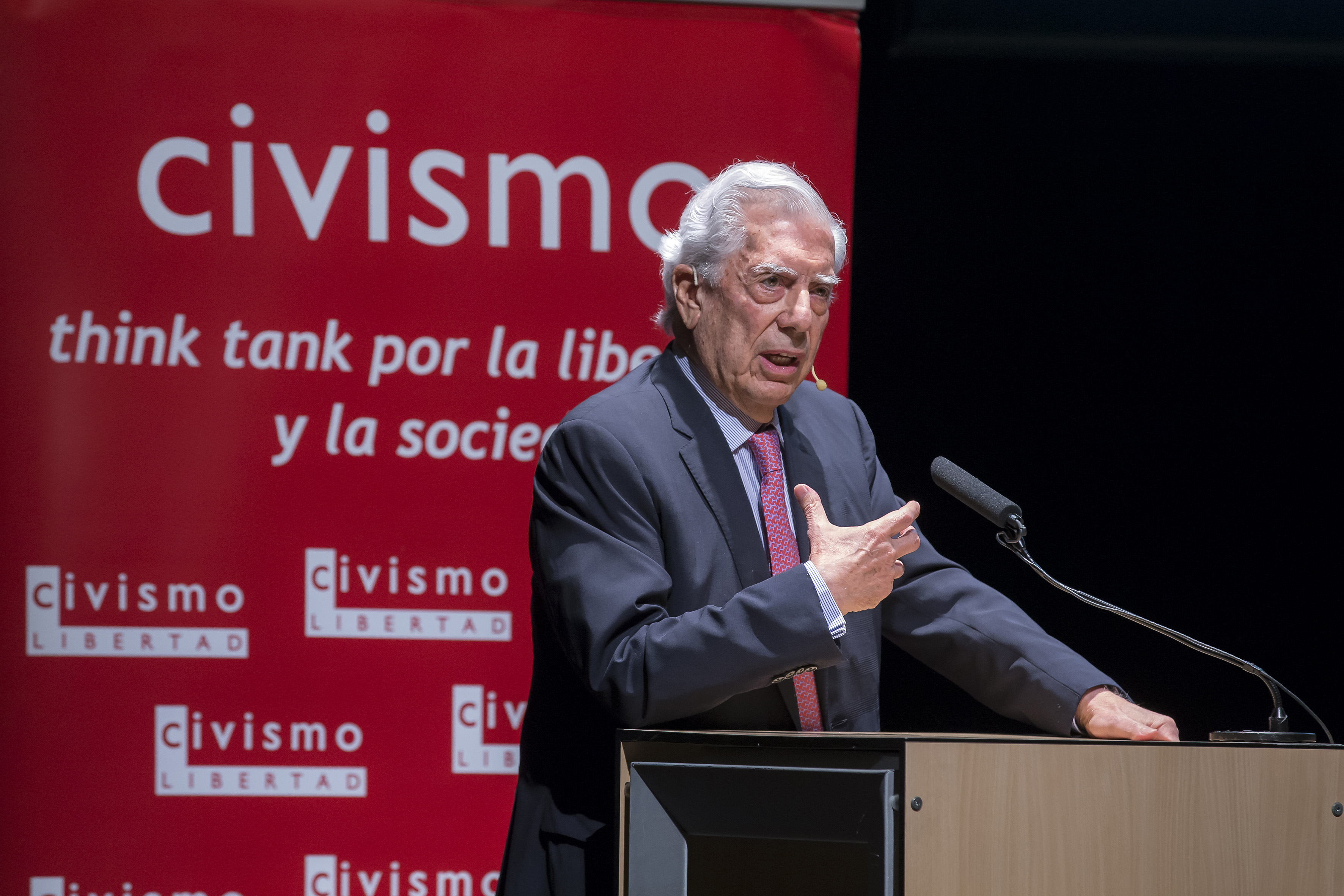
Navarra in Liberty: Nationalism against freedom
Within the conference series Navarra in Liberty, the Literature Nobel Prize winner Mario Vargas Llosa and the journalist and historian Cayetana Álvarez de Toledo spoke about how exclusive nationalism restricts the exercise of freedom and slows down the openness of a region.
Álvarez de Toledo stressed, in opposition to the nationalist postulates, that «there is no peace outside the Constitution». Therefore, she gave her «closed and enthusiastic support to one of the most intelligent and noble political operations of recent years in Spain, the Navarra Suma coalition». In allusion to this regrouping of parties to try to face the nationalist challenge, she pointed out that «only those who deeply understand the reactionary, tribal, xenophobic, anti-liberal and destructive nature of nationalism; only those who have thoroughly understood what there is at stake for Spain and Europe have had the greatness of joining forces».
In that sense, she advocated for unity around the great republican values —freedom, equality and fraternity— because they are «paradoxically, those who best embody the Spanish parliamentary monarchy».
Next, Vargas Llosa took the floor, and said that nationalism «is a retrograde movement, that longs for a past in which society was homogeneous». However, he rejected that such a model society ever existed. «There simply was a tribe, which existed out of necessity».
Therefore, the writer described nationalism as «a source of division and also violence for the whole society where it arises». A resurgence that blamed «the uncertainty against globalization, against the construction of Europe».
Finally, he asserted that literature constitutes a good «shield» against nationalism. «It shows the common denominator that unites us, more than what separates us, and this is critical. I am trying to think of a good nationalist novel and I don’t remember any», he joked.
